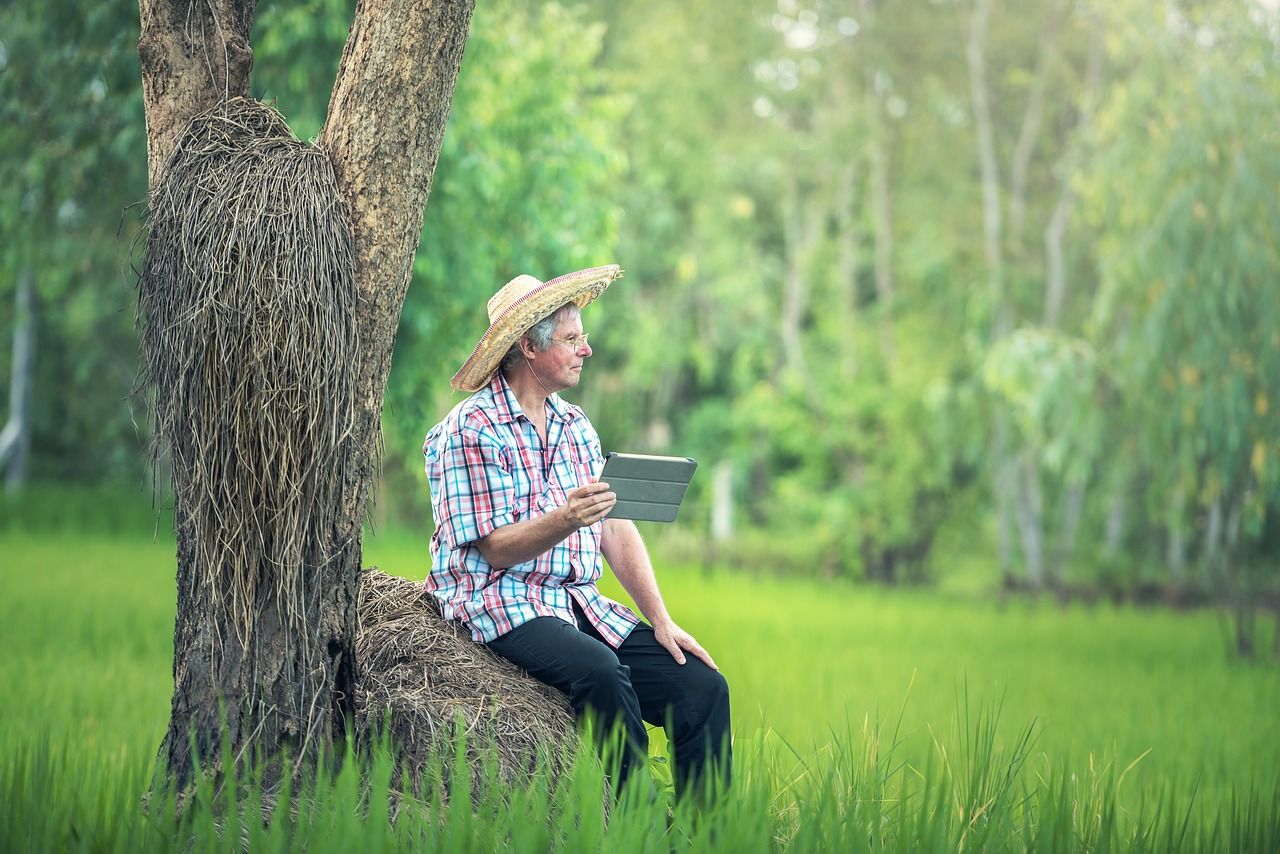BayWa, the German agriculture, energy, and construction conglomerate, has partnered with Austrian agricultural cooperative RWA Group on the Agro Innovation Lab startup accelerator program.
Based in Munich, BayWa Ag’s agriculture division focuses on trade, agriculture equipment, and the trading and wholesale of fruit.
“Investing in the accelerator is not something we are doing just to do it. We hope to find promising startups and initiatives that could become part of a long-term relationship and possible investment,” BayWa CEO Klaus Josef Lutz tells AgFunderNews.
BayWa is putting digitalization at the core of its agriculture strategy and visualizes this digitalization initiative as having three pillars: expanding core business into digital channels and additional services; developing completely new digital services within the existing businesses; investing in and investigating new digital business models and stand-alone concepts.
“Having built up various e-commerce activities and service apps for our core business as well as establishing a smart farming unit to develop farm management solutions, the engagement with an accelerator was the next logical step to explore new ideas and concepts,” says Lutz.
Agro Innovation Lab was initially launched by RWA Group, the wholesale company and service provider of the Raiffeisen Lagerhaus cooperatives, in Austria last year when it completed its first cohort. In the second cohort, BayWa will take a hands-on approach from start to finish including identifying candidates, choosing participants, and supporting the companies throughout the program as a full partner with RWA.
Taking a broad approach to the sector, the call for applications for the second cohort identified 15 fields where it hoped to target tech opportunities across organic agriculture, animal husbandry, urban farming, big data, supply chain management, IoT, and machine-to-machine communication.
“We help startups by providing mentors from various competence fields in both companies and give them access to our extensive external network of business partners and universities,” Lutz explains. “Because BayWa is also active in the fruit trading sector, we bring an additional type of product expertise within the agriculture sector that can enrich the program.”
The BayWa View of Agtech
Although BayWa is just beginning to dip its toe in the agtech accelerator scene, it has been keeping a careful eye on activities and developments in the space for some time. According to Lutz, he and his colleagues becoming more and more excited about the variety of new ideas and technologies they are seeing. Lutz indicates that BayWa is open to direct investments outside the accelerator if the opportunity is right and a serious strategic perspective is present. Also, critically important to BayWa’s agtech playbook, is developing ideas coming from within its own business. too
BayWa began investing in startups in 2012, targeting online customer management, services, and sales platforms initially. In 2015, the company purchased Farm Facts, a German farm management software company planning to extend its farm management and farm advisory capacities. And last month, it invested in Abundant Robotics, a US-based automated harvest company. BayWa invested alongside GV and several other VC firms for the startup’s $10 million Series A.
“Although we know that not every idea can turn into a real business model, we see new and innovative perspectives addressing our core businesses and innovative opportunities to serve customers through technology. For us, agtech is one of the most exciting sectors right now. Therefore, we are keen to support it and be part of it—and be successful in combining new and long-standing products and knowledge within the company.”
Some of the categories that it finds most interesting include drones, robotics, irrigation, farm management systems, IoT, M2M, big data, decision support systems, alternative protein sources, and general food tech. And when it comes to current activity, the outfit doesn’t view any sector as overheated.
Agro Innovation Lab
AIL will give BayWa a direct pipeline to upcoming startups who will also have access to RWA’s 1,000 distribution points and over 120,000 cooperative members during the three-month program. The geographical breadth of the program is also a plus for BayWa; the program is focused on taking a leading role in agtech innovation in the Eastern and Central European region, and the second cohort will involve activities in Austria and Germany
Applicant teams must have at least four members with a CEO acting as the strategic decision maker for the group. The startup must also have a prototype. Although they target early stage startups, they have the capacity to support later stage enterprises who have completed a Series A raise.
Startups will get access to like labs that can provide field trial locations, as well as $15,000 in cash support and office space.
At the end of the program, AIL offers support with raising capital including the chance to receive investment in return for a 3.5% to 5% stake in the business.
First Cohort
Last year, 160 companies from 49 countries applied to be part of the inaugural cohort. Four companies from Italy, Slovakia, Israel, and Australia were selected.
Slovakian startup CropTech has developed a sensor-based automation system for growing plants inside and outside called ResponzIO that can read the data from up to 16 sensors, autonomously control up to 8 devices, and present the data on any device, according to Lutz.
Italian startup Evja has developed a computer-based decision system that collects data from various sensors. This data can be sent to any device and provides the farmer with a better decision-making basis. Austrian company Evologic Technologies is working on a more efficient production process for arbuscular mycorrhizal fungi (AMF). This new process reduces the demand for fertilizers, pesticides, and irrigation, which also leads to higher margins.
Finally, the founders of Tevatronic are from Israel and have developed a fully autonomous irrigation control. Their sensors measure the actual need for water by the plant which in turn reduces the usage of water and fertilizers.





